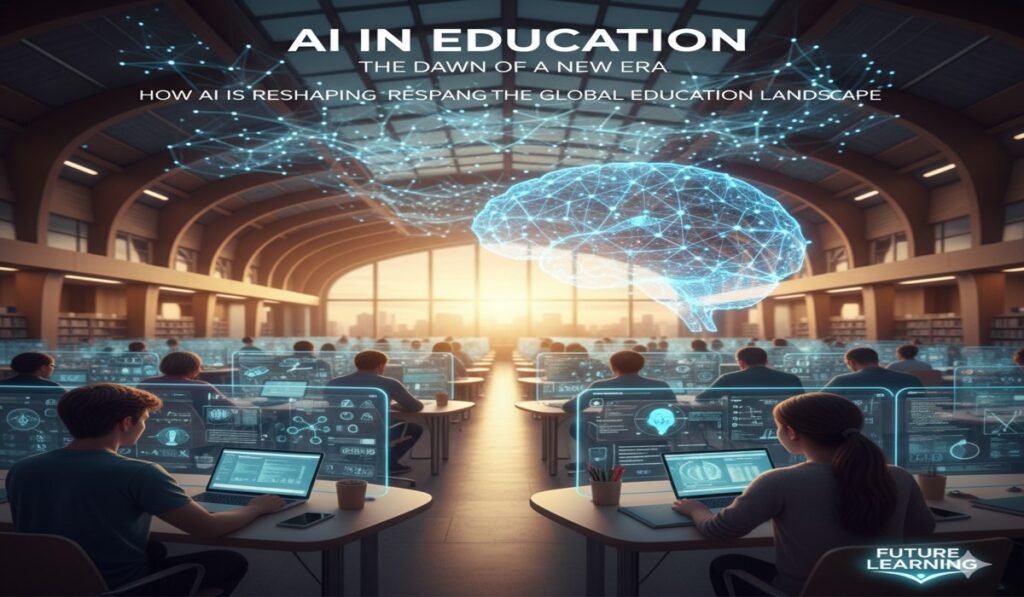The integration of Artificial Intelligence into the education sector has been an accelerating trend, but a recent development has signaled a full-scale revolution. Google’s “Gemini for Education” platform has rapidly expanded its reach, now serving over 1,000 U.S. colleges and reaching more than 10 million students. This aggressive push is not just a technological upgrade; it’s a strategic move that is fundamentally reshaping academic and administrative workflows and raising crucial questions about the future of learning.
Academic Workflows: From Learning to Creating
Gemini’s arrival on campuses is transforming the core of academic life. The platform’s emphasis on “guided learning” is a notable departure from simply providing answers. Instead, Gemini acts as a learning companion, helping students to structure their thinking, clarify concepts, and develop problem-solving skills through a step-by-step process.
This approach, built on Google’s proprietary LearnLM model, is designed to foster deeper understanding rather than rote memorization. For educators, Gemini automates time-consuming tasks. Teachers can use the AI to generate personalized lesson plans, create tailored study materials, and draft customized student feedback. The platform’s new “Gems” feature allows educators to build their own custom AI experts, like a virtual “interactive simulations” assistant for a specific course, and share them directly with students.
The impact of Gemini extends far beyond the classroom, streamlining campus operations. In admissions and enrollment, institutions like Arizona State University are leveraging Gemini’s predictive analytics to forecast enrollment with greater accuracy, leading to more efficient recruitment and resource allocation.
John Jay College of Criminal Justice is using the AI to identify students at risk of not graduating, enabling proactive and targeted interventions to improve retention rates. Chatbots powered by Gemini are handling a growing number of student and faculty inquiries, providing instant answers to questions about course schedules, financial aid, and campus services.
This automation frees up administrative staff to focus on more complex and high-touch support services.
A key component of Google’s strategy is its commitment to data privacy and security. Gemini for Education comes with enterprise-grade data protections, ensuring that student data is not human-reviewed or used to train AI models. The platform is designed to be compliant with major educational regulations like FERPA and COPPA.
This focus on privacy is critical for building trust with institutions and is a significant differentiator in the competitive ed-tech market. Google’s expansion of Gemini is part of a broader, global strategy to support AI literacy.
The company has launched the “AI for Education Accelerator,” a program offering free AI training and career certificates to students across the U.S. This initiative is a proactive effort to equip the next generation with the skills needed for an AI-driven workforce. However, the widespread adoption of such a powerful tool also raises concerns.
Critics argue that an over-reliance on AI could diminish students’ critical thinking and problem-solving skills if not managed responsibly. There are also questions about the potential for algorithmic bias and the need for new academic integrity policies to prevent misuse. The digital divide remains a significant concern, as equitable access to these technologies is not guaranteed for all students.
The prevailing sentiment among educational leaders is that AI will not replace teachers, but rather serve as a powerful assistant. The future of education is seen as a hybrid ecosystem where human educators can dedicate more time to mentorship, emotional support, and the cultivation of higher-order thinking skills, while AI handles the more routine and data-intensive tasks.
Google’s ambitious expansion of Gemini is not just about a product rollout; it’s about establishing the foundational infrastructure for this new era of education.
The success of this initiative will be measured not just in the number of colleges that adopt the platform, but in the tangible improvements it brings to student outcomes and the ethical framework it helps to build for the AI-powered future of learning.

